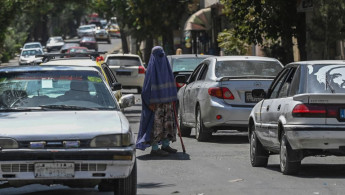Afghanistan in 'dangerous deepening of humanitarian need', UN warns
Drought, chronic economic instability, and escalating conflict are creating a "dangerous deepening of humanitarian need" in Afghanistan, according to a UN report published on Monday.
Even before the Taliban seized control of Kabul on 15 August, nearly half of the population - over 18 million people - needed humanitarian and protection assistance, the UN's Office for the Coordination of Humanitarian Affairs (OCHA) said.
"The recent escalation in conflict and resulting upheaval has only exacerbated needs and further complicated an extremely challenging operation context," read the OCHA report. "The humanitarian situation in Afghanistan was one of the worst in the world."
Over $600 million is required to support millions of Afghans who are suffering from food insecurity and are unable to access basic medical services, the UN agency said.
Afghanistan is currently experiencing its second severe drought in four years, impacting one-third of its population, as well as uncertainty about what life under the Taliban might hold in the long term.
Women and girls have endured the brunt of this humanitarian crisis, OCHA said.
In June and July alone there was a 10 percent reduction in the number of women and girls seeking medical and other forms of care due to restrictions on their fundamental rights, according to the UN agency.
Early and forced marriages have also become a mechanism for Afghans to survive, as has increased reliance on child labour, the report said.
OCHA spokesperson Jens Laerke told a UN briefing in Geneva on Tuesday that international donors need to step up in order to provide the vital food and medical aid 11 million Afghans will require for the rest of the year.
"Basic services in Afghanistan are collapsing and food and other lifesaving aid is about to run out," he said. "We urge international donors to support this appeal fast and generously."
The UK government promised last month to provide £286 million to the crisis in Afghanistan, doubling the amount of assistance it originally pledged but still giving less than it donated in 2019.





 Follow the Middle East's top stories in English at The New Arab on Google News
Follow the Middle East's top stories in English at The New Arab on Google News


![MP Essam Diab's pursuit to block TikTok in Egypt has revived an already ongoing debate in the country. [Getty]](/sites/default/files/styles/image_330x185/public/1230748046.jpeg?h=a5f2f23a&itok=-8MqBLLC)